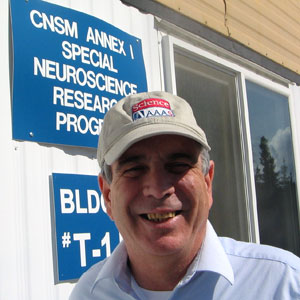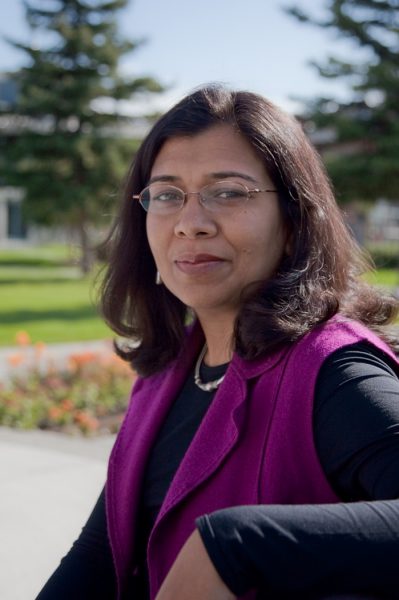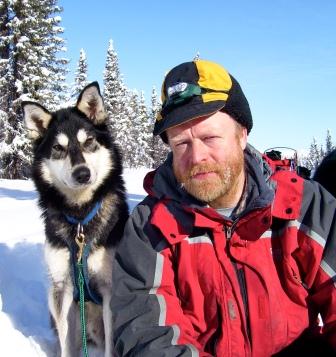Candidates for CNSM interim dean public forum schedule
January 22, 2018
The search committee for the interim dean of the College of Natural Science and Math announces that three candidates have been chosen to give a public, universitywide lecture as part of the selection process. Individual presentations by Lawrence Duffy, Karsten Hueffer and Anupma Prakash will focus their vision for CNSM. Each session will be 30-45 minutes long, with questions following. The audience will then have a chance to give written input on each candidate. We strongly encourage faculty, staff and students to attend these presentations.
Friday, Jan. 26, 2-3:30 p.m.
Lawrence Duffy
Reichardt 201 Pearl Boyd Lecture Hall
Watch a live feed =auto">here
Monday, Jan. 29, 2-3:30 p.m.
Anupma Prakash
Reichardt 201 Pearl Boyd Lecture Hall
Watch a live feed =auto">here
Wednesday, Jan. 31, 2-3:30 p.m.
Karsten Hueffer
Reichardt 201 Pearl Boyd Lecture Hall
Watch a live feed =auto">here
 Lawrence Duffy
Lawrence DuffyLawrence Duffy received his B.S. in chemistry from Fordham University in 1969, an M.S. in organic chemistry from the University of Alaska Fairbanks in 1971 and a Ph.D. in Biochemistry from the University of Alaska in 1977. He served as a lieutenant in the U.S. Navy from 1971-1973. After several years of research at Boston University, the Roche Institute of Molecular Biology, the University of Texas and Harvard Medical School, he returned to UAF where he served as associate dean of the College of Natural Science and Mathematics, dean of the Graduate School, and currently as director of the Resilience and Adaptation Program.
Since the Exxon Valdez oil spill, he has broadened his research activity from protein structure into the area of wildlife and human environmental health. The oil spill focused his attention on the need to develop biomarkers to monitor and assess the health of wildlife populations. These studies demonstrated that chronic exposure could be measured biochemically in mammals, not only showing damage to a resource, but also demonstrating recovery of the ecosystem. Biomarkers in human health research led to his research group back to wildlife and fish, but this time he focused on mercury exposure to humans from the fish that Alaskans consume. His work on mercury in subsistence food has been used by policymakers on the national level and allows him to involve undergraduate students in research and to discuss issues of environmental ethics and justice.
Currently, he is working on the question of how the central nervous system protects itself from these contaminants, especially considering the extreme environment of the Arctic. His group has additionally observed a significant variation in melatonin levels in Alaskans and has demonstrated that melatonin can reduce free radical damage, which has major implications for the prevention and treatment of stroke. Current research projects also include developing a dog model as a sentinel species for the Arctic and a model to determine the effects of mercury on vascular disease and diabetes.
Duffy was the principal investigator for the Alaska Special Neuroscience Research Program. This research program, funded by the National Institutes of Health, provided neuroscience research dollars to several UAF investigators and offered one of the best approaches to recruiting underserved students in the area of health care and biomedical research.
Duffy serves as the executive director of the Arctic Division of the American Association for the Advancement of Science that hosts an annual meeting every fall. He has also served on the Fairbanks Community Mental Health Center Board of Directors. During the summer, Duffy teaches chemistry and biochemistry to rural students in the Rural Alaska Honors Institute.
Duffy has received the Carol Feist Outstanding Advisor Award, the NIDCD Minority Mentoring Award, the UAF Award for Professional Achievement, the Usibelli Distinguished Research Award, the Sven Ebbesson Award for neuroscience and the UAF Chancellor’s Award for Diversity. For more information on Lawrence Duffy, please visit www.uaf.edu/chem/faculty/lduffy/.
 Anupma Prakash
Anupma Prakash
Anupma Prakash is a professor of geophysics (remote sensing) at the Geophysical Institute
and the Department of Geosciences. She is the associate dean for the College of Natural
Science and Mathematics and the director for the CNSM Division of Research. Prakash
is also the principal investigator of the National Science Foundation-funded Alaska EPSCoR, an initiative to increase research capacity in Alaska.
Prakash received her Ph.D. in earth sciences from the Indian Institute of Technology – Roorkee and conducted her postdoctoral research at the International Institute of Geo-information Surveys and Earth Sciences, Enschede, the Netherlands. Her research involves using field methods, remote sensing, and modeling for mapping Earth surface composition and change. Many of her research projects are large and interdisciplinary in nature. The maps and information her team generates help several end-users, including community members who need to adapt to changes, managers who are interested in resource extraction or alternate energy production in an environmentally friendly manner, and policymakers who need timely information for decision-making.
Prakash is internationally recognized for her research on the use of remote sensing and geographic information system techniques for investigating surface and underground coal mine fires. She applied these research methods to geothermal exploration and forest fire mapping. She founded the only airborne hyperspectral imaging research facility in Alaska. She also established two field sites in Interior Alaska for collecting essential climate variable data that can also be used for calibrating and validating satellite image products. Prakash serves as a member of the science working group for NASA’s planned HyspIRI satellite mission. Details of her research, teaching, publications, education and outreach activities are available at www.gi.alaska.edu/~prakash/.
 Karsten Hueffer
Karsten Hueffer
Hueffer’s research background is in host-pathogen interaction, molecular biology and
ecology of infectious diseases. More recently he has been working on student engagement
strategies specifically in rural Alaska. He received veterinary training in Germany
and later pursued a Ph.D. under Colin Parrish at the Cornell College of Veterinary
Medicine on host range of canine parvovirus studying the molecular basis and evolution
of parvoviruses as they expanded their host range from cats to dogs. He also investigated
receptor virus interactions of canine parvovirus with the transferring receptor. After
graduate school he furthered his molecular pathogenesis training at Yale Medical School
under Jorge Galaìn studying Salmonella pathogenesis until taking his current position
as faculty at UAF. Since arriving at UAF, Hueffer has expanded his research interest
to investigate infectious diseases in Alaska wildlife with a special interest in zoonotic
diseases, which are diseases that are transmitted from animals to people.
Hueffer has taught courses in the departments of Biology and Wildlife and Veterinary Medicine. His teaching experience ranges from introductory courses with around 100 students to graduate and professional courses. He developed five new courses at UAF and, as chair of the curriculum committee for the Department of Veterinary Medicine, has overseen the implementation of a new professional academic program at UAF. He holds a postgraduate certificate in veterinary education and has been internationally recognized for his teaching excellence. Hueffer has mentored many undergraduate and graduate students as well as postdoctoral fellows and junior faculty.
For more information on Karsten Hueffer, please visit www.uaf.edu/vmed/about-us/steering-committee/hueffer-karsten/.
For more information about the series of presentation, contact the Office of the Provost at 474-7096, 474-6634 or uaf.provost@alaska.edu.


